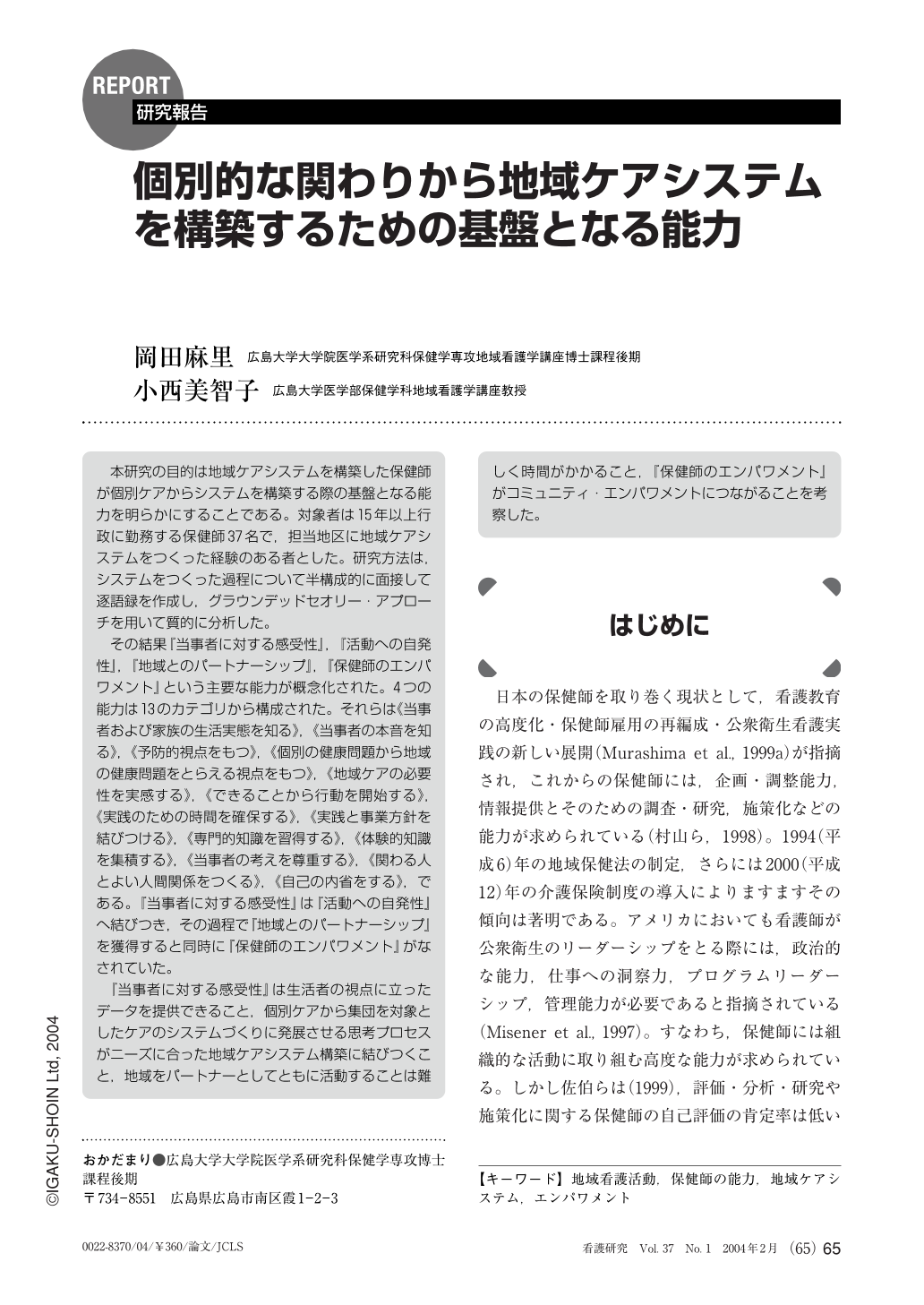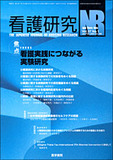Japanese
English
- 有料閲覧
- Abstract 文献概要
- 1ページ目 Look Inside
本研究の目的は地域ケアシステムを構築した保健師が個別ケアからシステムを構築する際の基盤となる能力を明らかにすることである。対象者は15年以上行政に勤務する保健師37名で,担当地区に地域ケアシステムをつくった経験のある者とした。研究方法は,システムをつくった過程について半構成的に面接して逐語録を作成し,グラウンデッドセオリー・アプローチを用いて質的に分析した。
その結果『当事者に対する感受性』,『活動への自発性』,『地域とのパートナーシップ』,『保健師のエンパワメント』という主要な能力が概念化された。4つの能力は13のカテゴリから構成された。それらは《当事者および家族の生活実態を知る》,《当事者の本音を知る》,《予防的視点をもつ》,《個別の健康問題から地域の健康問題をとらえる視点をもつ》,《地域ケアの必要性を実感する》,《できることから行動を開始する》,《実践のための時間を確保する》,《実践と事業方針を結びつける》,《専門的知識を習得する》,《体験的知識を集積する》,《当事者の考えを尊重する》,《関わる人とよい人間関係をつくる》,《自己の内省をする》,である。『当事者に対する感受性』は『活動への自発性』へ結びつき,その過程で『地域とのパートナーシップ』を獲得すると同時に『保健師のエンパワメント』がなされていた。
『当事者に対する感受性』は生活者の視点に立ったデータを提供できること,個別ケアから集団を対象としたケアのシステムづくりに発展させる思考プロセスがニーズに合った地域ケアシステム構築に結びつくこと,地域をパートナーとしてともに活動することは難しく時間がかかること,『保健師のエンパワメント』がコミュニティ・エンパワメントにつながることを考察した。
This study explores public health nurses' fundamental competency in creating the community health care systems in each community from providing individual care. Thirty-seven public health nurses, with at least 15 years experience and who have created community health care systems, were interviewed.
Grounded theory methodology is used to create a community health care system based on four major competencies: 1)being sensitive to individual client health problems, 2)taking practice initiative, 3)community partnership, and 4)empowering colleagues. They were composed 13 categories; 1)prioritizing assessment of individual client and their family daily life; 2)prioritizing assessment of individual client's feelings; 3)orienting care provision to prevention; 4)assessing community health needs through assessing individual health needs; 5)understanding connections between community care and individual client needs; 6)initiating possible intervention; 7)prioritizing time for practice, 8)coordinating practice and policy; 9)ongoing professional learning; 10)gaining skilled knowledge through practice; 11)respecting client opinions about health maintenance; 12)building effective relationships with other community health care workers; 13)reflecting self as a public health nurse.
It is important that public health nurses initiate effective practice oriented toward the needs of individual clients thus empowering each other and challenging themselves to partner with the community.
The theme of the study is “being sensitive to health problems of individual clients” as the foundation of community health nursing. Inductive thinking is the major competency in creating effective systems for community care that is based on individual care. Furthermore, community health nursing through community partnership is difficult and time consuming. Public health nurses are empowered by maintaining productive relationships with colleagues and the wider community and committing to continuing education and practice experience.

Copyright © 2004, Igaku-Shoin Ltd. All rights reserved.


